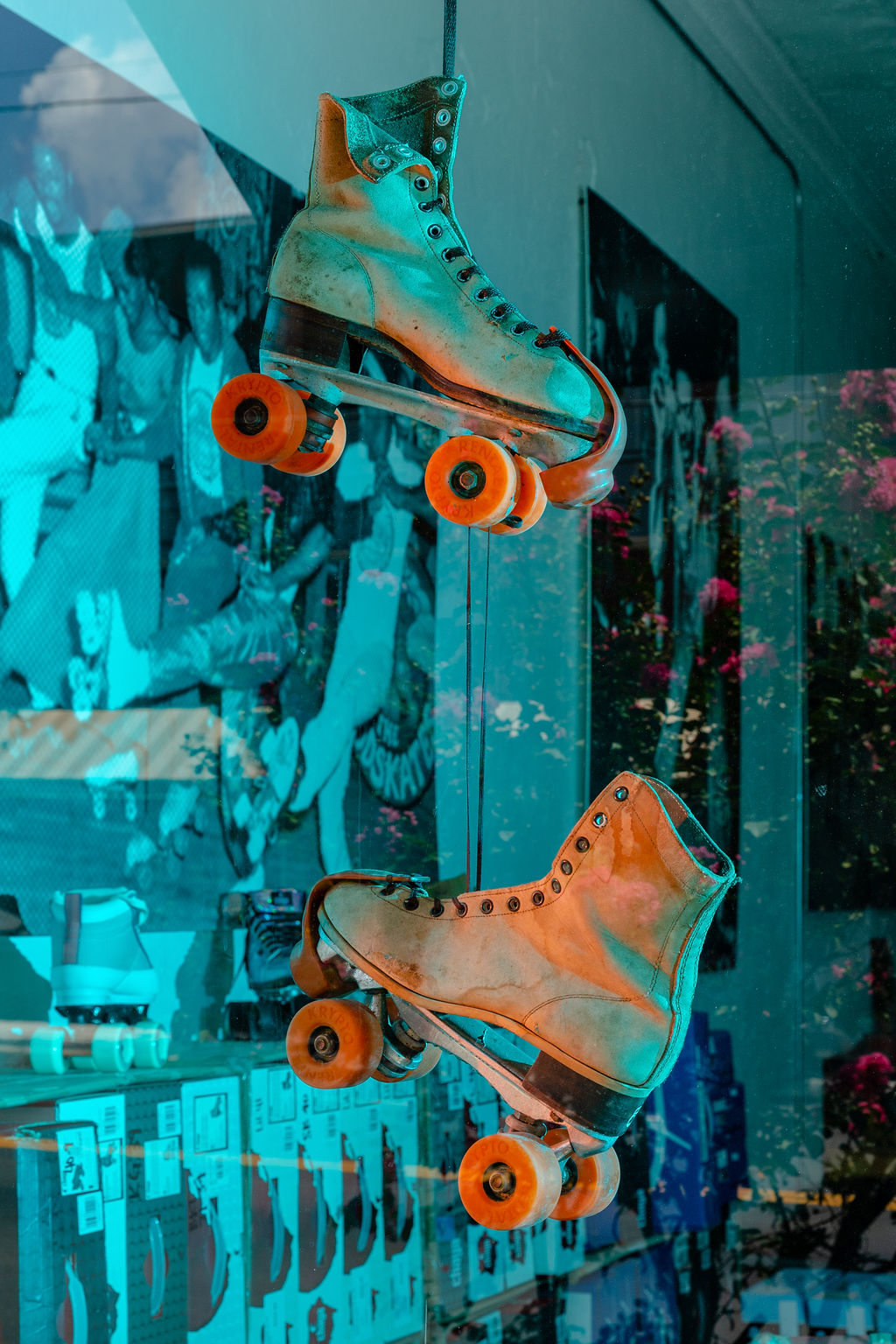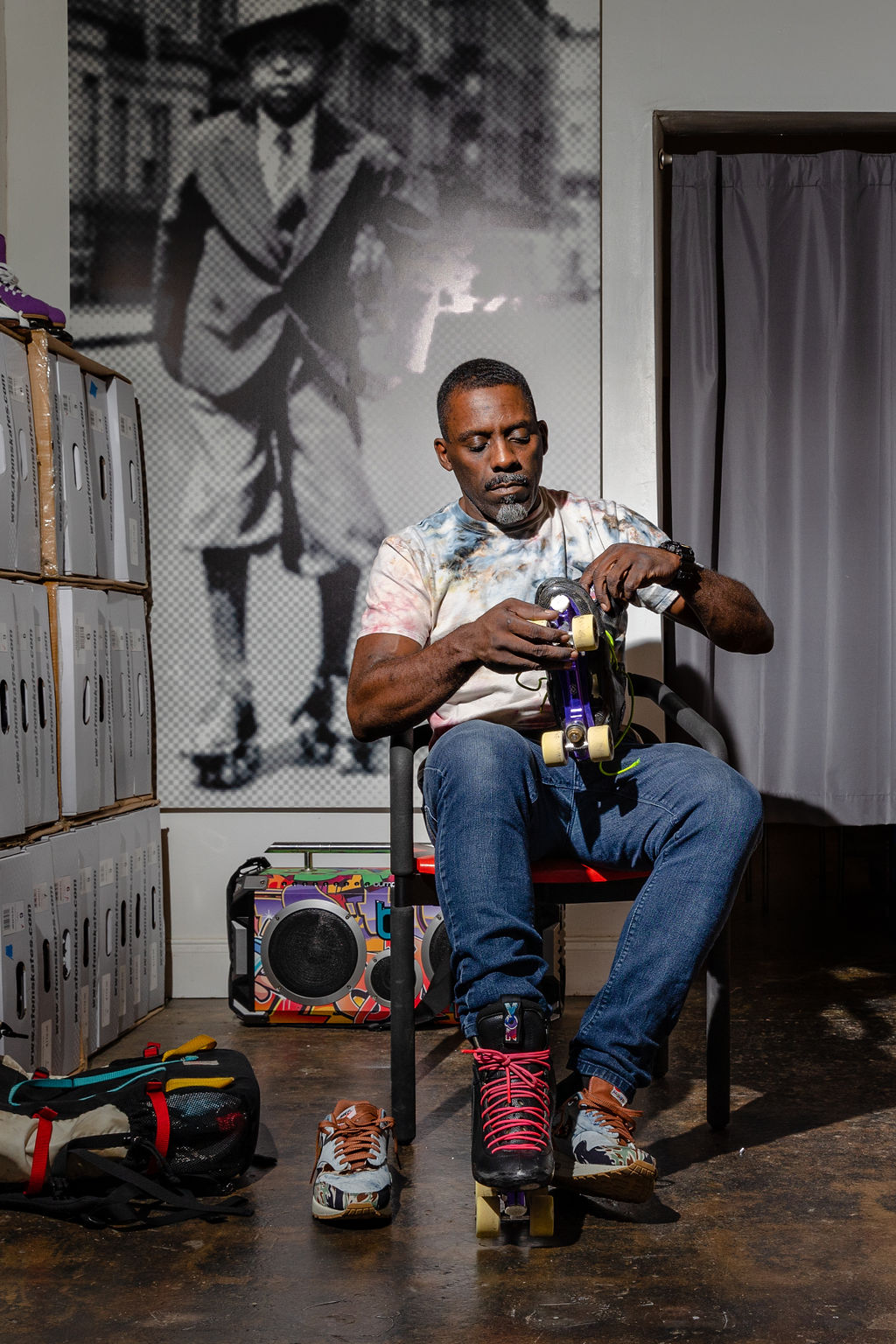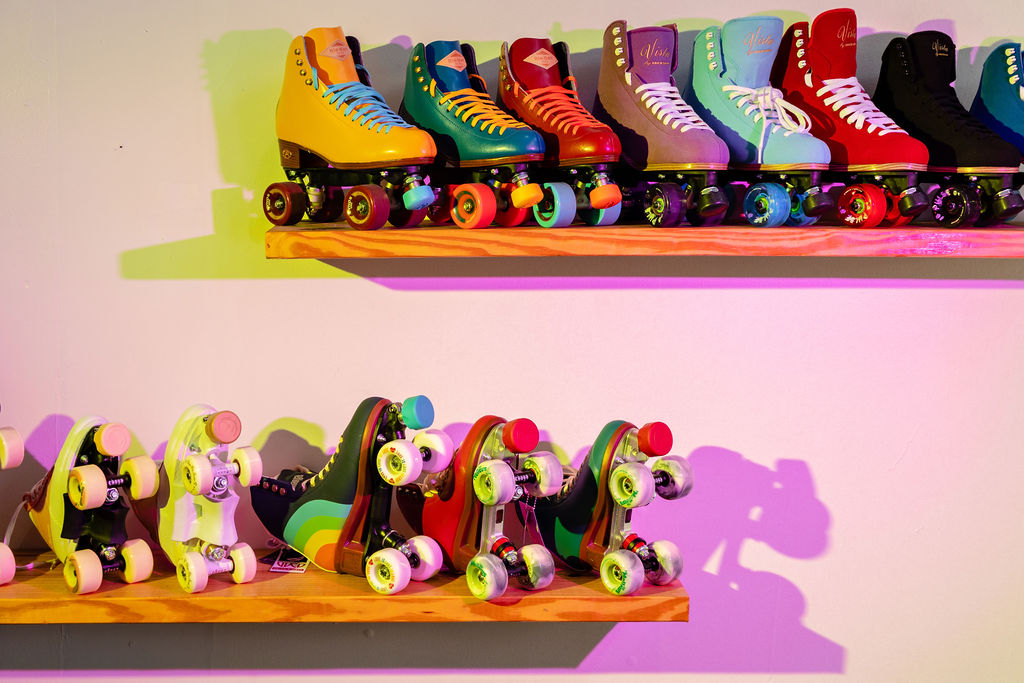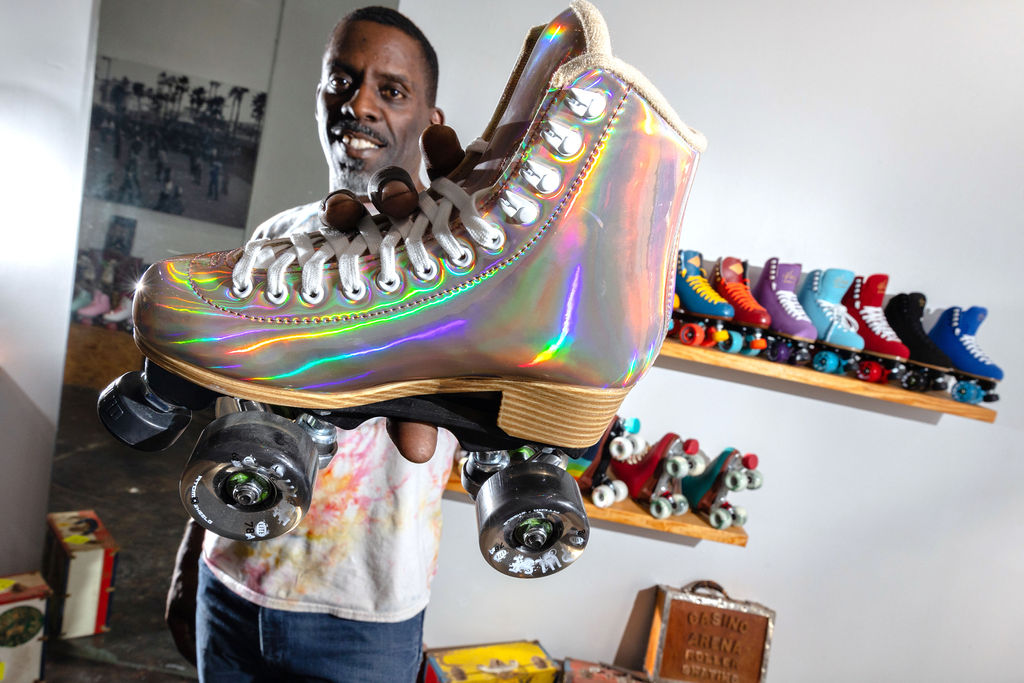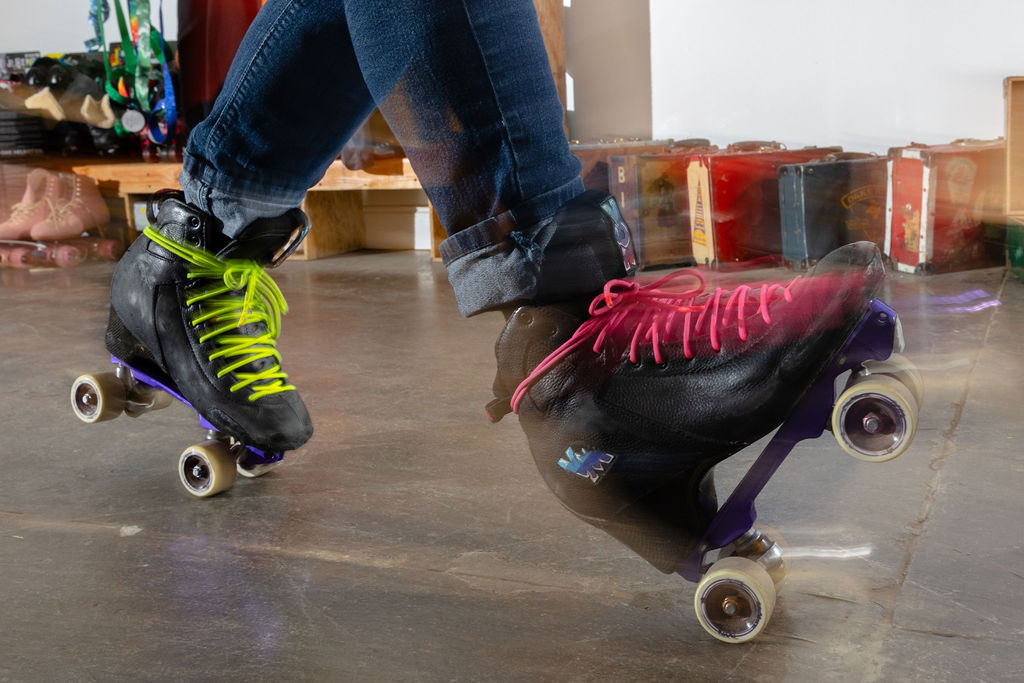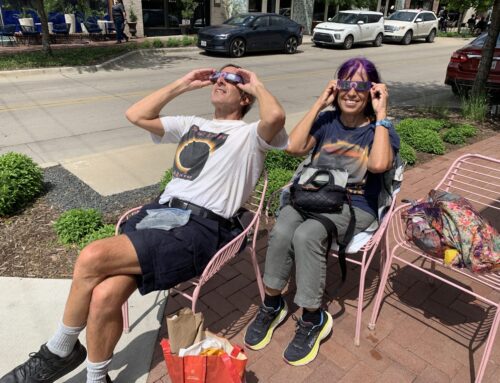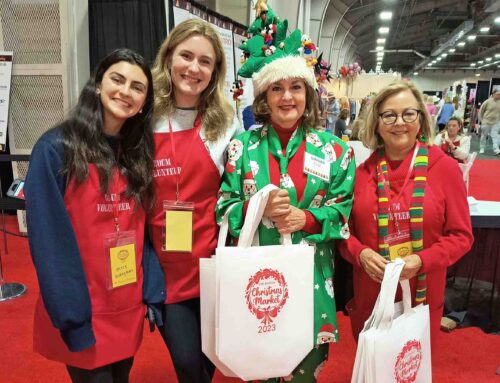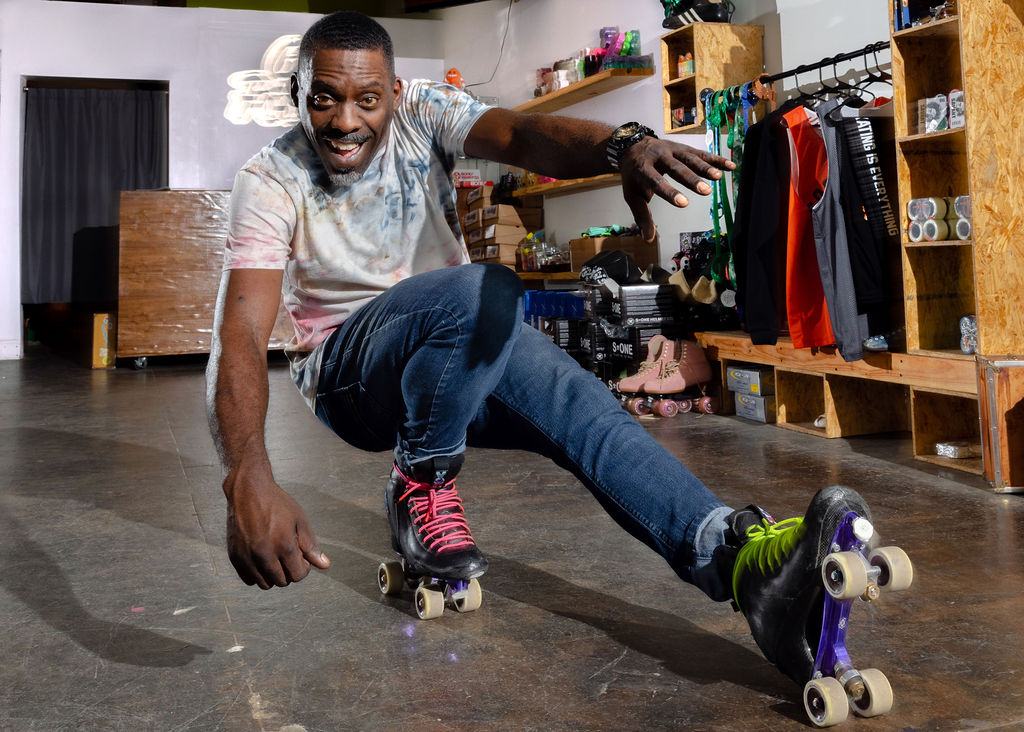
Photography by Shelby Tauber
In a world where the most photogenic activities such as base jumping from hot air balloons or nibbling pink macarons proliferate the culture, roller skating, with its just-so blend of beauty, nostalgia and peril, is in.
For Mo Sanders — a Seattle transplant and roller-skate celebrity who quietly opened a shop in Oak Cliff during a pandemic — it was never out.
“You hear a lot of people saying skating is coming back. For us who’ve been skating, we’re thinking, ‘no, you are coming back. We’ve been here,’” he says. “For us, it’s just what we’ve al-ways done.”
At 51, Sanders has dedicated his life to skating, risen to celebrity status and faced a fall from favor among many of his peers.
About three years ago he picked himself up and moved to Dallas to open Good Foot Skates.
In its cozy suite across from the Bishop Arts Theatre Center, Good Foot’s minimalistic merchandising, disco-era fonts and sunny hues indicate its owner’s awareness that his preferred sport’s current popularity is largely related to aesthetics and Instagram. TikTok, combined with COVID-19 — which made sidewalks and trails some of the safest spaces for exercise and play — contributed to roll-er skating’s recent resurgence, he says.
ROLLER SKATING ROOTS
Big grayscale prints of Black roller skaters in the 1970s decorate the walls and hint at Sanders’ deeply rooted relationship with the pastime. In opening the only full-service roller skate shop in Dallas, Sanders has helped to reconnect the community with a beloved hobby whose ties to Black culture are undeniable, writes Amara Amaryah, a blogger at the web magazine Travel Noire.
“The art of roller skating serves as a reminder of radical Black joy,” Amaryah writes.
Sanders learned from his father, Greg “Cowboy” Sanders, a horse-riding and roping buckaroo from Muskogee, Oklahoma, who was known for cruising Tacoma, Washington streets (where he raised Sanders) on eight wheels in his Stetson and Wranglers. Cowboy introduced his son to the roller rink, and young Mo was hooked.
“It was social in the beginning. It was where you would go and see your friends,” he says. “I honestly don’t know when — maybe it was in my teenage years — I knew it was something I wanted to do all the time, that I liked doing this a lot.”
FAME AND CONTROVERSY
Sanders rode the blading wave of the 1990s — X Games, speed skating, stunts and a TV show called RollerJam in which Sanders appeared regularly.
He took up derby, “just a way to spend more time skating,” he says, and earned his own nickname, Quadzilla.
Quadzilla’s acrobatic moves, mind-blowing footwork and stunts, such as jumping 14 people, won over fans. Documentarians and filmmakers took notice.
In the 2007 Disney musical Enchanted, during an epic number filmed in Central Park, Sanders and a group of guys breakdancing on wheels momentarily steal the spotlight from stars Amy Adams and Patrick Dempsey.
He appears in at least three documentaries (Derby Baby, This Is How We Roll and Wheels Will Land).
A fixture in the derby world, Sanders became a sought-after coach. Many come to the sport with athleticism but not skating specific experience, he says.
“They know how to go fast and hit people,” he says.
So he shared his knowledge, ran skills camps all over the world, developed his own line of skates and played for the U.S. roller derby team in the first two men’s World Cups.
But as Sanders was preparing to play his third World Cup tournament, a member of a women’s team, emboldened by the #metoo movement, wrote a blog post, since deleted, accusing Sanders of inappropriate conduct. It cost him everything, he says.
He resigned from the team and lost a pending contract with the skate brand Chaya.
The incident in question happened 16 years ago in New Zealand, Sanders says. The woman said that while the team was soaking in a hot tub post practice, Sanders grabbed her leg, near her thigh, three times, even after she told him to stop.
“That’s what the story was,” he says. “So I literally lost my entire livelihood. I was completely shut out.”
In a public apology at the time (he says he also personally apologized to the woman), Sanders said it is possible he touched the woman. But he said in 2018 that he is “sure he did not continually grope or force himself on her.
“I know what verbal and nonverbal cues are, and I know what consent is and I would never knowingly touch someone in a sexual way without consent,” he said.
The accusation divided the derby community, Sanders says. The accuser, also a respected member, had many supporters. Some wrote Sanders off. Others, including several of his teammates (who Sharpied his number 23 on their legs for the high-profile World Cup match, drawing their own criticism), defended him.
At the time of publication, the woman who accused Sanders of misconduct had not responded to an interview request.
Not wanting to make things worse for his friends or himself, Sanders says, he withdrew from the sport he had loved for so long.
NEW BEGINNINGS
“And that was it. I was out of the spotlight for probably two years,” he says. “Then, about three years ago, I moved down here.”
When his buddy first pitched the idea of helping him open a store in Dallas, he says, “I was like, ‘hell no.’”
But further prodding and financial encouragement finally convinced him.
Now Good Foot is a low-key gem that attracts customers from all reaches of the roller universe.
“You’ve got professional skaters, pro athletes, moms, dads, kids, people who used to skate all the time and just want to pick it back up 30 years later,” Sanders says. “You got new skaters, roller derby, roller disco, skate park and street skaters — all of them.”
It’s not base jumping, but having the correct gear and preparation, which Good Foot provides, can prevent in-juries, so a full-service shop is a good place to start for beginners, he says.
Sanders has become a trusted member of Dallas’ roller derby community, says Tasha Willingham, chief marketing officer at DFW league Dal-las Derby Devils, lending credibility to a character once called into question.
Willingham has been in roller derby since 2009 and has known Sanders a long time.
“We played in the same tournaments, and while, back then, I did not know him like I now know him, I personally have never seen him in a different light than the highly respected person we know today,” she says. “Mo has been around longer than I have. He’s been somebody that many people have always looked up to.”
She says the league takes participants’ safety seriously. Members take SafeSport training, designed to prevent abuses in organized sports, and undergo background checks.
Sanders volunteers with the league and coaches kids and new members. And he is the most knowledgeable person around when it comes to gear, Willingham says.
As Quadzilla, Sanders skates for the Death Row Rumblers, and when his team isn’t playing, fans will probably see him refereeing or helping out in some other way, Willingham says.
SKATE DALLAS
Skate culture in our city is altogether blossoming, Sanders says. The little DFW Skate group on Facebook, which started with a few people, has some 8,000 members now. Outdoor and lifestyle skating — on trails, the pedestrian bridge, skate parks and smooth streets — is especially popular. It’s good exercise and looks cool on social media, but roller skating, in whatever form, is mostly about enjoyment, Sanders says.
“It’s just one of those things that is fun, a tie to childhood,” he says. “There’s this endorphin release when you’re just having a good time with it. It is what I love.”

